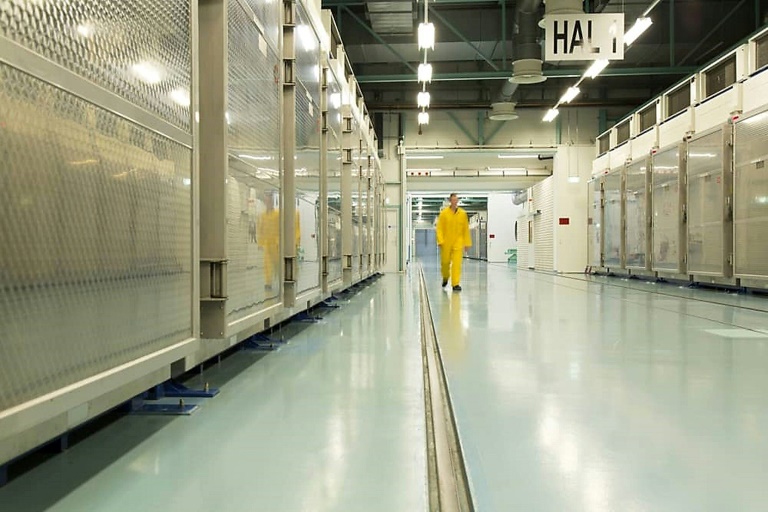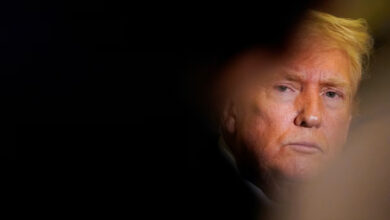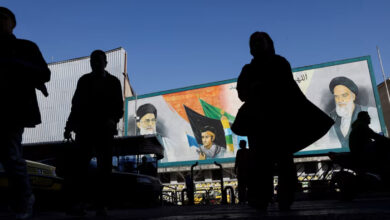
Iran resumed uranium enrichment at its underground Fordow plant south of Tehran on Thursday in a new step back from its commitments under a landmark 2015 nuclear deal.
Engineers began feeding uranium hexafluoride gas into the plant’s mothballed enrichment centrifuges in “the first minutes of Thursday,” the Iranian Atomic Energy Organisation said.
The suspension of uranium enrichment at the long secret plant was one of the restrictions Iran had agreed to on its nuclear program in return for the lifting of UN sanctions.
Iran’s announcement that it would resume enrichment at the Fordow plant from midnight (2030 GMT Wednesday) had drawn a chorus of concern from the remaining parties to the troubled agreement.
Britain, China, France, Germany and Russia have been trying to salvage the hard-won deal since Washington abandoned it in May last year and reimposed crippling unilateral sanctions.
They say Iran’s phased suspension of its obligations under the deal since May makes that more difficult.
The resumption of enrichment at Fordow is Iran’s fourth move away from the deal.
Uranium enrichment is the sensitive process that produces fuel for nuclear power plants but also, in highly extended form, the fissile core for a warhead.
Iran is now enriching uranium to 4.5 percent, exceeding the 3.67 percent limit set by the 2015 deal but less than the 20 percent level it had previously operated to and far less than the 90 percent level required for a warhead.
Iran has always denied any military dimension to its nuclear program.
It has been at pains to emphasize that all of the steps it has taken are transparent and swiftly reversible if the remaining parties to the agreement find a way to get round US sanctions.
“All these activities have been carried out under the supervision of the International Atomic Energy Agency,” the Iranian nuclear organisation said.
A source close to the UN watchdog told AFP that it has inspectors on the ground in Fordow and would report “very rapidly” on the steps taken by Iran.
UN inspector told to leave
Iran revealed on Thursday that it had withdrawn the credentials of one IAEA inspector last week after she triggered an alarm at the gate to Iran’s other enrichment plant at Natanz, raising suspicion she was carrying a “suspect product.”
It did not specify what the product was or whether it had actually been found in the inspector’s possession.
But it promised that its representative to the IAEA would deliver a detailed a report on the incident at a special meeting on Iran at the agency’s headquarters in Vienna later on Thursday.
The resumption of enrichment at Fordow comes after the passing of a deadline it set for the remaining parties to the nuclear agreement to come up with a mechanism that would allow foreign firms to continue doing business with Iran without incurring US penalties.
Russian Foreign Minister Sergei Lavrov expressed concern about Tehran’s announcements but said European powers should do their part.
“They are demanding that Iran fulfill all (obligations) without exception but are not giving anything in return,” he told reporters in Moscow.
The Kremlin has previously called sanctions against Iran “unprecedented and illegal.”
European concern
French President Emmanuel Macron said Iran had made “grave” decisions and its resumption of uranium enrichment was a “profound change” from Tehran’s previous position.
“I will have discussions in the coming days, including with the Iranians, and we must collectively draw the consequences,” Macron said during a trip to Beijing.
The next few weeks will be dedicated to increasing pressure on Iran to return within the framework of the pact, the French president said, adding that this must be “accompanied by an easing of some sanctions”.
“A return to normal can only take place if the United States and Iran agree to reopen a sort of trust agenda” and dialogue, Macron said, adding that he would discuss the issue with Trump.
Foreign Secretary Dominic Raab said Britain remained committed to a negotiated way forward but demanded that Iran abide by its obligations.
“We want to find a way forward through constructive international dialogue but Iran needs to stand by the commitments it made and urgently return to full compliance,” he said.
German Foreign Minister Heiko Maas said Iran must roll back its “unacceptable” decision to resume enrichment at Fordow.
“We call on Iran to reverse all steps taken since July and return to full compliance with its commitments,” Maas told reporters in Berlin.




